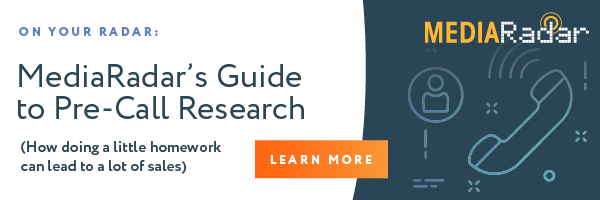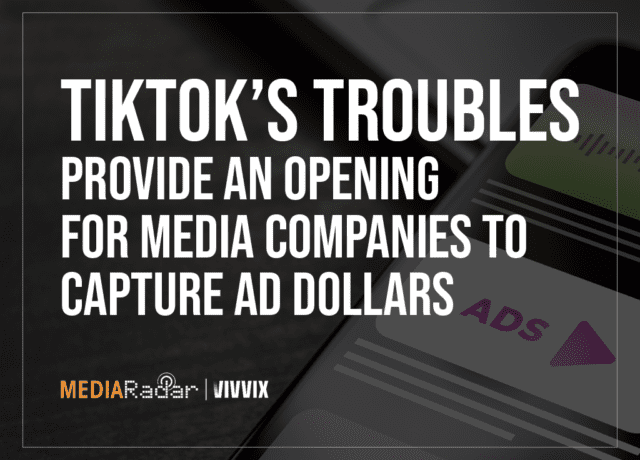In our last sales call planning blog post, we listed five tips for national consumer media companies. As they tend to focus on brands, we discussed their prospects’ brand messaging and whether or not those brands preferred higher CPM units or lower ones.
Ad tech companies focus on brands too, yet they also aim to uncover new opportunities outside of their programmatic scope and capitalize on shifting digital advertising budgets.
These are the questions that ad tech companies should be asking themselves about their prospects before a sales call.
1. What is My Prospect’s Ad Spend Distribution?
How are your prospects allocating their advertising budgets and which product lines are they focused on? Do they value linear TV, digital, mobile, email, print, programmatic, and/or more?
Prospects with a larger budget should be more appealing to you because you have more money to earn from them. They can test many different product lines like linear TV, digital, mobile, email print, and programmatic.
2. How Does My Prospect Advertise Programmatically?
Are the brands that you’re looking into placing ads programmatically? Which DSPs, SSPs, exchanges, or native platforms are they currently working with?
By breaking down a prospect’s digital spend down to the product line, you can determine exactly which SSPs, DSPs, and exchanges it’s using to place ads. If most of a prospect’s digital spend is targeted toward programmatic buying, you can compare its sell side and buy side spend to previous years to determine what’s trending within its strategy and landscape.
Pinpointing exactly where and how your prospects are placing their ads can help you decide not only which channels to pitch and where the opportunities to upsell are, but also get verified contact information for media buyers. This way, you can maximize your advertising revenue across many media platforms.
Many advertisers don’t just stick to one ad format. While Tony Mamone, who presented at the recent 2018 FUSE Media: The Convergence of Technology and Media conference, combines marketing automation with 100% programmatic sales, he seems to be an anomaly. In fact, 50% of advertisers actually purchase more than one ad format to grow their audience and achieve financial results.
3. Who Else Works With My Prospect?
Do your prospects have a Master Service Agreement (MSA) in place or are they free to work with you?
A Master Service Agreement (MSA) is a contract reached between parties, in which the parties agree to most of the terms that will govern future transactions or future agreements. This basically means that the same terms (aside from the deal-specific ones) will not need to be repetitively negotiated. If a prospect has this agreement, they are most likely bound to it and, unless it’s broken for some reason, there’s no opportunity for you to take that prospect on as a client.
4. How is My Prospect Changing its Advertising Strategy?
Did your prospects hire new representation? Did they increase their ad spend or start placing with your competition?
If your prospects increase their ad spend, it’s time to pay close attention. This probably means that they’re looking for a change — and that change could be you.
Even if they hire new representation or start placing ads with your competition, you should take note. Which brands do your competitors work with and where do those advertisers place ads? How can you outshine your competitors so that advertisers notice you and choose you in the future?
Conclusion
Similar to national consumer media companies, ad tech companies also need to talk about where their prospects place ads, how their prospects are allocating their advertising budgets and which product lines they’re focusing on, and if they’ve hired new representation, increased their ad spend, or started placing with the competition.
There are differences between national consumer media companies and ad tech companies, however. Ad tech companies should also know if brand advertisers are working with DSPs, SSPs, exchanges, and/or native platforms and if they’re looking into placing ads programmatically. Furthermore, these types of companies should find out if their prospects have a Master Service Agreement (MSA) or if the prospects are actually free to work with another company.
If you, as an ad tech company, go through these sales call planning tips, understanding your prospects more and more along the way, then you’ll be in a better position to close a deal.





